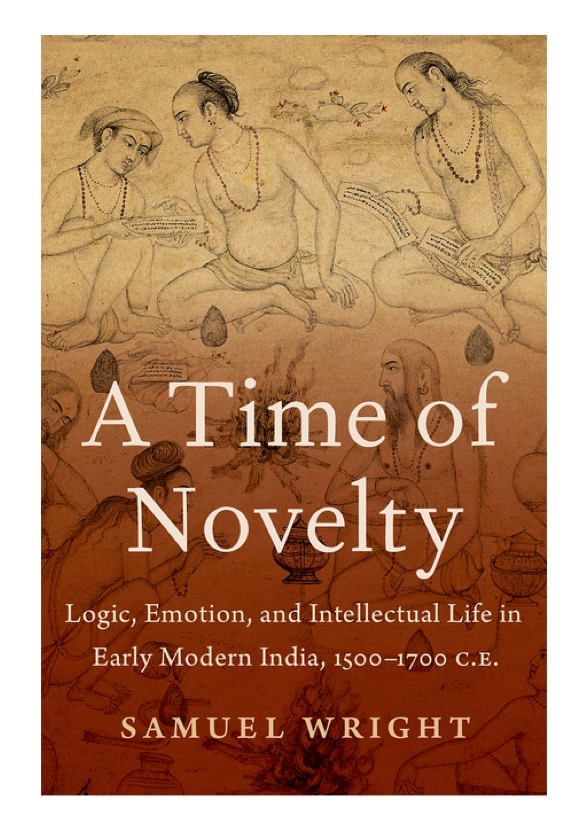A Time of Novelty: logic, emotion, and intellectual life in early modern India, 1500-1700 C.E.
This book argues that a philosophical community emerges in sixteenth- and seventeenth-century India that crafts an intellectual life on the basis of intellectual and emotional responses to novelty in Sanskrit logic (nyāya-śāstra). As the book demonstrates, novelty was a primary concept used by Sanskrit logicians during this period to mark the boundaries of a philosophical community in both intellectual and emotional terms. This concept was expressed in their texts through the use of terms such as old and new when discussing certain philosophical opinions, signaling that periodization was a major component of their philosophy. By retaining space for emotion when studying intellectual thought, this book recovers not only what it means to 'think' novelty but also what it means to 'feel' novelty. Studying little-known essays by Sanskrit logicians in early modernity, the book explores the contours of what is termed 'intellectual novelty' and 'affective novelty' in Sanskrit logic-expressions of novelty in which is contained both cognitive and emotional content that, taken together, constitute intellectual life.

Publisher
New York: Oxford University Press
ISBN
9780197568163, 0197568165
Publication date
1 Jan 2021 – 31 Dec 2021
Specialisation
Humanities
Theme
Religion
Other
History
Region
South Asia
India
Bengal